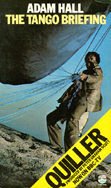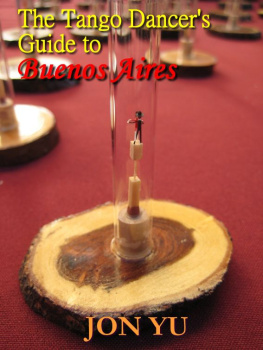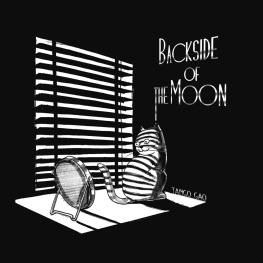The author and publisher have provided this e-book to you for your personal use only. You may not make this e-book publicly available in any way. Copyright infringement is against the law. If you believe the copy of this e-book you are reading infringes on the authors copyright, please notify the publisher at: us.macmillanusa.com/piracy.
BRICK BY BRICK, MY CITIZENS. BRICK BY BRICK.
He steps off the plane and into a shimmering world. Theyve hidden the airport beneath a thick coat of dazzle. Depth of field in every direction. A parade of razor-thin screens, angled atrium glass, and staccato mirror work. Everything scrolls, winks, and blinks, but softly, like Sunset Strip on mute.
He can feel it, all this kinesis, like a twitch in his brain stem. Its old code, an ancient alert system. Any shiver in the outer peripheral registers as another living creature, another consciousness, potentially an opportunity, possibly a threat. This airport shivers too, even at this late hour.
Walking deeper into the terminal, he passes a crowded bar. A long row of shiny: gleaming marble counters, brushed chrome stools, and translucent hanging lamps. Enough live bodies that the vibe is happy-hour horny. The flavor is surprisingly poly-tribe, which is new slang for the global mash-up, the hybridization of signs, styles, and meanings that is somehow now: Liberty International Airport, Newark, New Jersey.
In Chile, he once got good dollars to em-track an early poly-tribe. This was over a decade ago, one of the first jobs of his em-tracking career, and back before anyone was paying anything for a skill that no one yet knew existed.
Except for the Japanese.
At the behest of some faceless Osaka-based mega-corp, he spent a month in Chile, hunting new and exploitable micro-demographicsa task, they suspected, for which em-trackers were particularly well-suited.
They were right.
Hed uncovered one of the early subcult melds, the first internet generation to carve their identity from a global menu of counterculture. Style-wise, they borrowed saggy hip-hop gear from West Coast rappers, cartoonish Gyaru makeup from the Japanese cosplay scene, and angular Emo hairstyles from the Washington, DC, post-hard-core crowd. Their attitudes crossed anything-goes California bisexuality with edgy Brit-punk sneer, a combination that led to a completely novel form of rebellion: wet-kissing strangers on the street.
This airport, he figures, is poly-tribe lightthe safer upscale version.
Just past security, a tall Chinese man with dark glasses and a dapper cap holds almost his name on a sign. The placard reads JUDAH ZORN, so he almost walks on by. For a long time now, everyones called him Lion. His real name actually is Judah, but a job in Jamaica turned that into Lion of Judah, which stuck, and makes sense, but only if you speak Rasta.
It takes him a couple of steps to remember his real name.
Lion backtracks. Im Judah Zorn.
Bo, extending a hand for his carry-on.
Bo starts toward the exit. Lion falls in a step behind him, noticing a series of white scars above a bar code tattoo on the back of Bos neck. A new poly-tribe sign? Maybe Rilkeanthough the Rilkeans are mostly a myth.
Like everything else, these facts get slotted. The data fed into the maw of Lions adaptive unconscious, fodder for his pattern recognition system, fodder for his talent. A long time ago, Lion was a journalist. Now theres no real name for his job. An empathy-tracker, hes heard it called, also a wayfinder. Neither are exactly right. His old editor once gave him a T-shirt that read TRUTH SEEKER. Thats probably closer, but not the kind of thing one puts on a business card.
The early researchers described em-tracking as a hardware upgrade for the nervous system, maybe the result of a genetic shift, possibly a fast adaptation. Studies revealed an assortment of cognitive improvements: acute perceptual sensitivity, rapid data acquisition, high speed pattern recognition. The biggest change was in future prediction. Normally, the human brain is a selfish prognosticator, built to trace an individuals path into the future. The em-trackers brain offers a wider oracle, capable of following a whole cultures path into the future.
Also a decent way to make a livingwhich explains why hes on the East Coast.
Down an escalator and around a corner. In a seventeen-foot Chanel ad, Lion catches the reflection of his straight-world uniform: layered blacks and grays, like a secret bruise. Gray hooded sweater, dark wool coat. Black jeans appear to have slid up above black boots. From the waist down, he could be his earlier punk rock self. From the waist up, for a while now, hes not sure what the signifier signifies.
Bo takes a right turn at something menacing, maybe Eddie Bauer. Magazine stand. Starbucks. Out into the New Jersey night.
The SUV is idling at the curb, clearly an impossibility in todays hyper-security, or someone knows someone, that much for sure. Bulky black and scary polished. Bo opens the door, and Lion climbs inside.
The whisper-click of expensive engineering as the door shuts itself, the exhale of plush seats as he settles in. Like the upholstery is breathing and standard now, almost everywhere. Too comfortable is what Lion usually thinks; tonight he needs the swaddle. His post-plane system quivers with more human contact than he typically prefers. Emo-stim overload, the kids called it, one of the downsides of em-tracking.
The SUV glides into traffic with just enough motion that a paperback copy of Slouching Towards Bethlehem slides across the dashboard. This catches his attention. Slouching was one of the books that made him want to be a journalist. Could Bo really be a Joan Didion fan? With the bar code tattoo, a possibility. But the other option? Lion shivers at the idea that Arctic, his temporary employer, would have spent the money to dig that deep.
Bo glances right, hunting for something on the seat. The bar code on his neck contracts as he moves. In the scrunch, Lion can make out a single question mark, which is telltale Rilkean, their marching orders: Live the questions.
So maybe a myth no more.
But he doesnt have time to think about this. Bo found what he was looking for, and appears to be passing it to him over the partition. A skinny rectangular box, ornate and etched with dragons.
From Sir Richard, he says. You can, of course, smoke in the car.
In his grip, the boxs exterior gives a little. Its the sigh of skin, of fauna, not flora, very soft, utterly wrong. Lion feels the flash that is almost, but not yet, angry.
Not leather, says Bo, silencing his escalation. Tissue engineering. Stem cells. Lab grown.
Puzzled replaces perturbed.
Yeah, continues Bo, animal friendly. But its not my department. I was told to tell you this if you needed to know.
Lion catches Bos eyes in the rearview.
Sir Richard assured meyou would need to know.
As they pull into traffic, hes no longer wondering. Arctic clearly dug. But its now so easy. How little remains hidden, how little it seems to matter.
You know, says Lion, I havent met Sir Richard.
Bo doesnt answer, simply accelerates the SUV into silence. Lion tries to enjoy the ride. He flew into Newark intentionally, despite the longer trip into the city. LaGuardia, at night, like being lost in a funeral parlor. And he likes this view of New York better.













